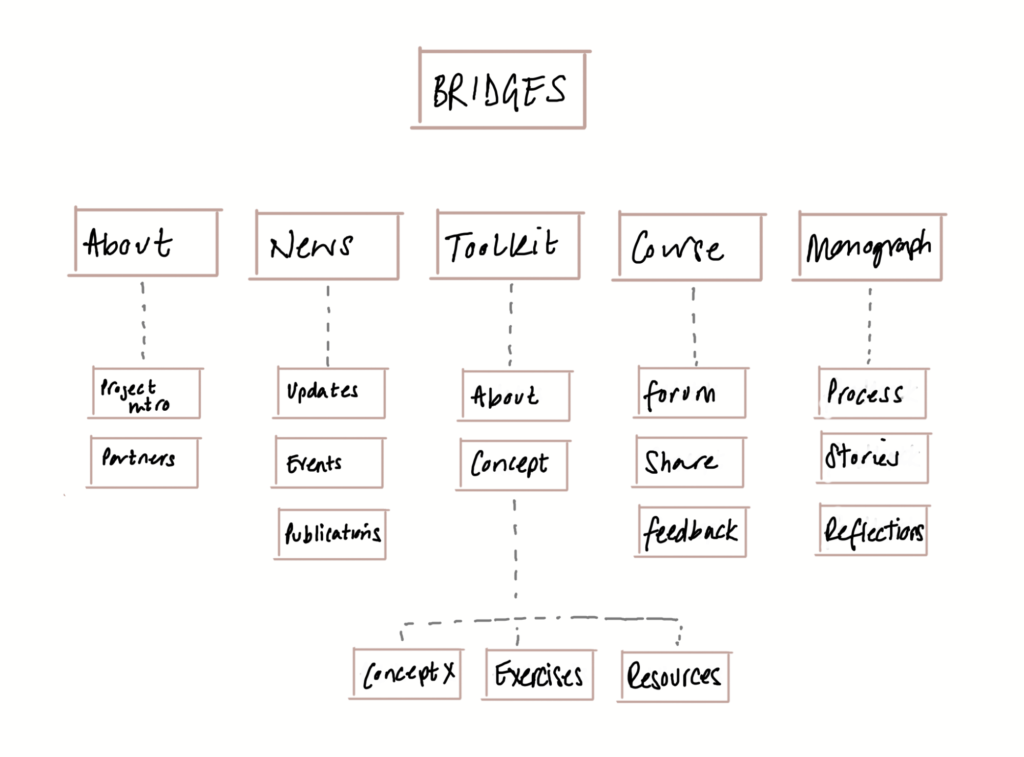It has been a year since the BRIDGES project began and we are already glimpsing some of its results. In the previous Newsletter we announced the upcoming completion of the Toolkit and in this one we want to announce the advances of the Virtual Lab, an online platform that combines multiple functions:
- the reference space for the project and that serves as a tool for disseminating its results;
- a meeting point, interaction and collaboration space between people interested in the themes of the project and that will host the “campus” where to take the online course “Inclusion without discrimination”;
- and a digital archive that hosts the Toolkit to access, download and assess its activities and resources.
Thanks to the free access to all BRIDGES contents, the Virtual Lab will ensure the future sustainability of the project, once it is finished. Its interactive, multimedia and multilingual character (it will be available in 4 languages: English, Spanish, German and Greek) will provide support in closing geographical gaps and linguistic divides. As the project advances, it will be developed more and will include new content in its different sections. In addition, it is linked to the different media and social networks of the project: Facebook, Twitter and Instagram. And also, from the home page, anyone can subscribe to the BRIDGES quarterly Newsletter.
The section of the Virtual Lab dedicated to the “campus” that hosts the online course “Inclusion without discrimination” will allow to upload and share materials, access activities and pedagogical exercises, or debate and raise questions through online forums and other communication spaces. All the products derived from the BRIDGES project, both the Toolkit and the Course and all the associated content, can be commented, evaluated and valued by those who consult and use them. All these characteristics make of the Virtual Lab a key tool for the transfer of project’s results at an international and European level and in higher education contexts. As we explain in a post in this Newsletter, the Virtual Lab will be presented along the next months, since the end of January onwards (depending on every country’s restrictions and lockdowns), in the four cities participating in the project and it will continue to be updated until the end of it.
Here you can see the basic architecture (in progress) of the Virtual Lab:

In this newsletter:
Posts
- Next Virtual Lab presentations (De-centered Multiplier Events)
- Presentation of the BRIDGES Project at “Decolonising the Curriculum Seminar Series”, in the University of Brighton
- ZAATAR’s Zoom Support Group for LGTBQI asylum-seekers on Greece
- ZAATAR’s Support Group for asylum-seekers men in Greece who have been victims of sexual violence
- Participation of FACR in the Digital Conference “Exploring Intersectionality – Building Solidarity across EU-Turkey Borders: Inclusive Education in Times of Forced Migration and COVID-19”
- “Dismantling asylum: The EU Migration Pact viewed from Greece and Italy”, Event co-organized by Aila Spathopoulou (FACR)
- Participation of Marisela Montenegro and Catalina Álvarez (UAB) in the Conference “Dissent the History. Decolonial memories, rebellious memories”
Publications
- Facing Crisis: Queer Representations against the Backdrop of Athens
Myrto Tsilimpounidi & Anna Carastathis, “Facing Crisis: Queer Representations against the Backdrop of Athens”. In Queer and Trans Migrations: Dynamics of Illegalization, Detention, and Deportation. Edited by Eithne Luibhéid and Karma R. Chávez. University of Illinois Press, 2020.
https://www.press.uillinois.edu/books/catalog/75pcg4gz9780252043314.html - Crisis goes viral: containment in the age of contagion in Greece
Anna Carastathis, Aila Spathopoulou & Myrto Tsilimpounidi, “Crisis goes viral: containment in the age of contagion in Greece.” In Kallio, K. P., de Sousa, M. L., Mitchell, K., Häkli, J., Tulumello, S., Isabel Meier, Carastathis, A., Spathopoulou, A., Tsilimpounidi, M., Bird, G., Russell Beattie, A., Obradovic-Wochnik, J., Rozbicka, P., & Riding, J. (2020). Covid-19 discloses unequal geographies. Fennia: International Journal of Geography, 198(1-2), 1-16.
https://doi.org/10.11143/fennia.99514
https://fennia.journal.fi/article/view/99514
